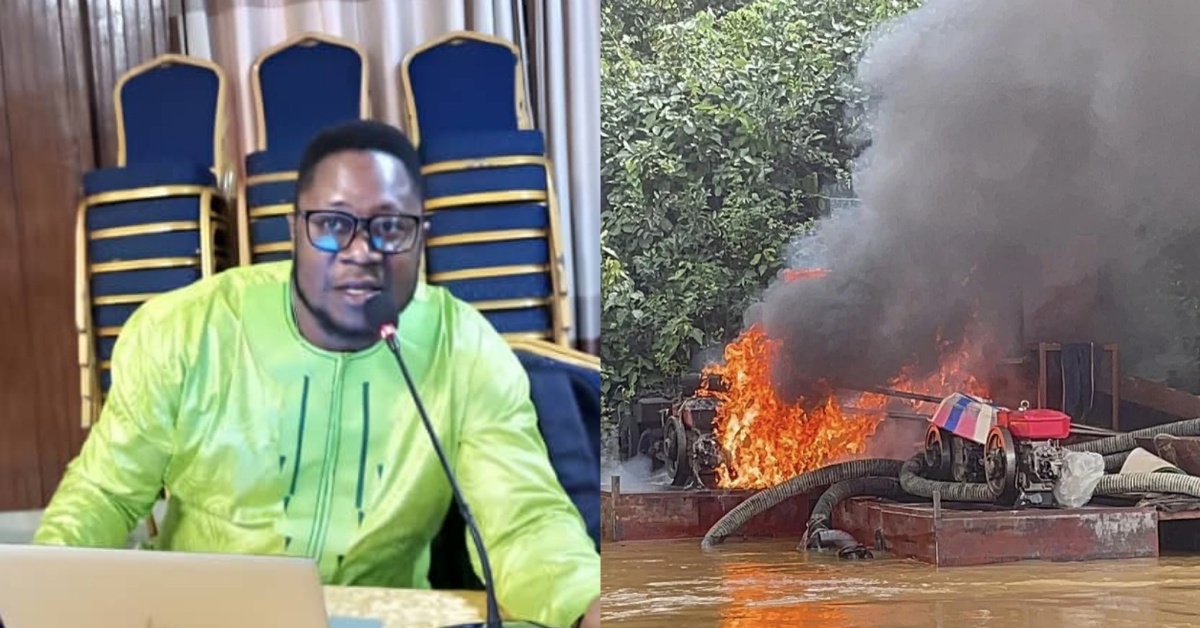An Enviromental Expert Ansu Bangura has raised concern over recent destruction of 20 dredges dredges along the Pampana River, in the surrounding villages of Maneteh and Maseneh, Chiefdom, Tonkolili District
According to Ansu he commend the effort of the Environment Protection Agency Sierra Leone (EPA-SL) in exercising its crucial role in safeguarding the environment under the Power of the Agency 13(ciii) ‘The Agency shall have, for the performance of its functions under this Act, the power to – issue an environmental permit and enforcement notice for controlling the volume, types, constituents and effects of waste discharges, emissions, deposits or another source of pollutants and of substances which are hazardous or potentially dangerous to the environment’.
The operation to target the removal of dredges along the Pampana River, in the surrounding villages of Maneteh and Maseneh, Chiefdom, Tonkolili District was a bold step in the right direction to ensure a comprehensive control over the emergence of dredges and subsequently safeguarding the rivers and the environment within diverse districts in the country.
However, the method used to dispose of the dredges confiscated was not only improper but also undermined the overarching goal of conserving the environment and undermined their mandate in protecting the environment, and contradict the Paris Agreement enforced on November 2016.
This agreement is a legally binding international treaty on climate change dealing with greenhouse gas emissions mitigation, adaptation, and finance, which was adopted on 12 December 2015 by 196 parties at the United Nations Climate Change Conference (COP21) in Paris, France.
Setting the dredges burning as a method of waste disposal constitutes a significant act of carbon emission into the environment, which the EPA-SL should control and prevent as stated in PART VII 36 (1a) of the Environment Protection Agency Act, 2022 ‘A person shall not discharge toxic and hazardous substance into the air or in, on or under the land and waters of Sierra Leone’. Carbon emissions are known to be major contributors to climate change and global warming, resulting in adverse effects on ecosystems, human health, and the planet as a whole. The hunter has been caught in his trap; should the EPA face the law as prescribed?
The EPA-SL failed to consider the potential environmental impacts and disregarded proper protocols for disposing of such equipment. By exploring alternative disposal methods, they missed an opportunity to mitigate any negative consequences. Furthermore, this inadequate approach sends a message that these types of offenses can be easily overlooked or ignored, thereby weakening the deterrence effect needed to prevent future violations.
Therefore, regulatory bodies such as the EPA-SL must know better and proactively devise appropriate interventions in such a situation that involve harmful activities.


 Post a comment
Post a comment 








